Biblical Times Podcast
The Bible isn’t just a religious text - it’s a time machine that transports us to the day-to-day lives of ordinary people who married, had kids, toiled the land, experienced seasons of bounty and hunger, and withstood years of warfare. Much like you and I, these biblical heroes loved, loathed, coveted, and knew the gut-wrenching pangs of heartbreak. The ”Biblical Times Podcast,” is your portal into the past. We aim to guide listeners on a journey back thousands of years, right into the era of biblical heroes. Our mission is to contextualize their actions against the backdrop of their realities, societal norms, and legal structures. Written and edited by Dr. Liora Ravid, who holds a PhD in Biblical Studies and is the author of the book, “Daily Life in Biblical Times.”
Episodes

Monday Dec 16, 2024
Monday Dec 16, 2024
In previous episodes, we focused on the pursuer-pursued relationship between Samuel and Saul. We described how Samuel, instead of supporting and assisting the young and inexperienced king, publicly humiliated him and undermined his authority as king and military commander. We also showed how Saul silently and submissively endured Samuel's verbal attacks.
In Chapter 14, a new character enters the story - Jonathan, Saul's firstborn son. As the natural heir, Jonathan was destined to succeed his father and become the second king of Israel.
Saul's mental deterioration and his troubled relationship with his son are revealed against the backdrop of the battle with the Philistines. That day, Jonathan initiated warfare without informing his father, thereby bypassing the king's authority who was also the army's commander.
Before joining the battle, Saul made his warriors swear not to eat until evening. The consequences of this strange oath were immediate: the warriors, having eaten nothing all day, became exhausted to the point of fainting.
Jonathan, who was not present at the oath-taking and knew nothing of it, tasted a bit of honey which gave him an energy boost, as the sugar in honey is an exceptional source of energy.
Against the backdrop of the battle day, the author reveals not only the troubled and alienated relationship between father and son but primarily the worrying transformation in Saul's mental state.Saul who had bowed his head before Samuel's wrathful words disappeared, replaced by a new, obsessive, and compulsive character.
The change in Saul's personality first appears in Chapter 14 when he learns of Jonathan's violated the oath - an oath he knew nothing about. For a single drop of honey, Saul intended to execute his son. Only the forceful intervention of his soldiers prevented the death sentence from being carried out.
From a literary perspective, Chapter 14 introduces the following chapters. Against the backdrop of the ongoing war with the Philistines, the author describes Saul's mental deterioration, until his descent into a world of hallucinations and threatening evil spirits.
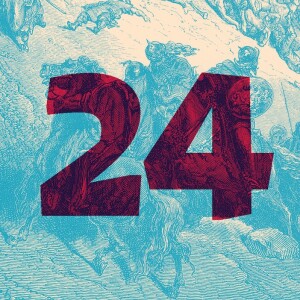
Saturday Nov 23, 2024
Saturday Nov 23, 2024
This episode delves into the psychological dynamics of Samuel and Saul.
The turning point in Samuel's personality—previously depicted as gentle and reserved—occurs when the tribal elders visit his home to request the appointment of a warrior-king for Israel. They point out that his sons are corrupt and therefore unfit to inherit his position (Chapter 8).
While Samuel ignores the harsh criticism directed at his sons, from that moment onward, he is portrayed as a vengeful and angry man. Instead of appointing the warrior-king as the elders sought, Samuel chooses young Saul—a man with no military experience and anxious tendencies. Saul was someone Samuel could, and did, manipulate, torment, and humiliate.
The narrative depicts Saul's gradual psychological decline, culminating on the eve of his final battle against the Philistines. Desperate and broken, Saul seeks out the Witch of Endor and asks her to summon Samuel’s spirit from the dead. When Samuel’s spirit rises, it mercilessly berates Saul, leaving the king collapsed and helpless on the ground.
This episode concludes with a striking plot twist. Samuel, who initially appointed an inexperienced and fragile young man as king, repeats this pattern by selecting another young man with no military background—David. However, unlike Saul, David proves to be a natural leader: charismatic and emotionally resilient.
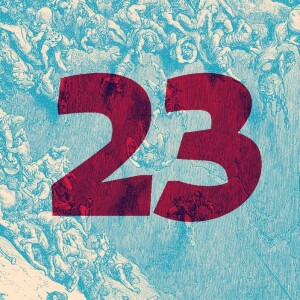
Sunday Nov 10, 2024
Sunday Nov 10, 2024
This episode presents the first meeting between two contrasting figures, whose relationship will develop into a powerful historical and psychological drama.
Samuel, the experienced religious leader, reveals himself in his old age as a zealous, angry, and vengeful character - contrary to the expectation that he would become a measured and balanced leader. Despite his impressive appearance and tall stature, Saul turns out to have a fragile and submissive personality.
The Bible describes the three coronations in which Samuel crowned Saul as the first king of Israel. While one would expect the young king's coronation to be a festive and respectful event, the opposite occurred. Each coronation was more humiliating and traumatic than the last.
In this episode, we lay the foundation for the troubled relationship between the two, which will continue to escalate and accompany Saul's miserable years of reign until his tragic end.
The sharp contrast between Samuel and Saul creates a powerful drama that unfolds against the backdrop of the struggle against the Philistines.
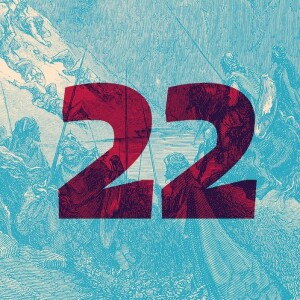
Wednesday Oct 23, 2024
Wednesday Oct 23, 2024
The episode deals with the transition period of Israelite society from a tribal structure to a monarchy, because of the Philistine threat to Israelite settlements.
The Philistines, who arrived in the land of Israel around 1200 BCE, initially settled in coastal cities and later penetrated inland, aiming to forcibly take over the houses and lands of the Israelites.
The Philistines excelled in military organization, advanced warfare methods, and the knowledge required to produce iron weapons.
Moreover, their society was led by skilled military commanders who cooperated in war times.
By contrast, the Israelite tribal society was led by elders with civilian roles, who did not cooperate even in times of war - weakening them all and playing into the hands of the Philistines.
The tribal elders understood the need for unity and the appointment of a king who would establish a unified army to protect all the tribes of Israel.
Chapter 8 describes their meeting with Samuel and their demand to appoint a king.
Chapter 8 reveals another critical fact: Samuel had two corrupt sons who took bribes, and despite knowing this, he prepared them to inherit his position, which the elders strongly opposed.
Samuel opposed the elders' request to appoint a king, claiming it was a rebellion against God, but God instructed him to comply with their request.
In our view, as revenge for the harsh criticism directed at his sons, Samuel chose a young man lacking self-confidence and military experience - Saul - as king.
In the following episodes, we will prove this claim and also demonstrate that Samuel brought about Saul's downfall.
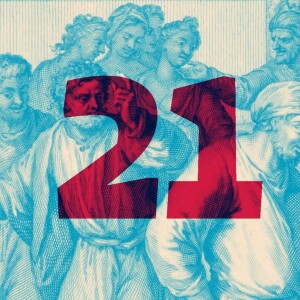
Monday Oct 14, 2024
Monday Oct 14, 2024
This episode focuses on Chapter 4 of the Book of Samuel, introducing the Philistines and their conflict with Israel.
The Philistines were ancient tribes who arrived on Israel's coast around the 12th century BCE.
Initially, they settled in coastal cities of Israel, but gradually they moved inland. This shift led to wars with the Israelites over farmland and water sources.
Chapter 4 describes a severe battle where the Philistines defeated Israel, destroyed the temple at Shiloh, and captured the Ark of the Covenant.
The Philistines took the Ark to Dagon's (their supreme god) temple in Ashdod. Still, according to the biblical narrative, the God of Israel prevailed over Dagon and afflicted the Philistines with plagues.
After seven months, they returned the Ark to Israel, though they continued to attack Israelite settlements.
This episode notes that while the Philistines left numerous archaeological artifacts indicating a sophisticated culture, they eventually disappeared from history.
However, during the period described in the Book of Samuel, they were at the height of their power and significantly influenced the ancient Near East.
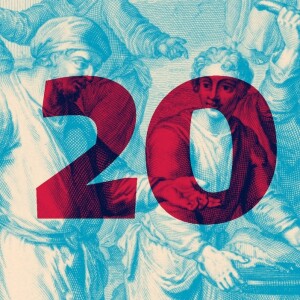
Wednesday Oct 02, 2024
Wednesday Oct 02, 2024
This episode focuses on Chapters 2 and 3 of the Book of Samuel, set around 1070 BCE in Shiloh, a small worship center near Jerusalem. The story details Samuel's early life under the guidance of Eli, the elderly priest.
Chapter 2 emphasizes the corrupt behavior of Eli's two sons, Hophni and Phinehas, described as "scoundrels." These brothers abuse their priestly positions by stealing meat from sacrifices and committing sexual crimes in the temple area. In stark contrast, young Samuel is portrayed as obedient and respectful, growing in favor of God and people. Samuel's behavior justifies his inheritance of Eli's position instead of Eli's sons.
The narrative reaches a climax when God reveals himself to Samuel three times in one night, declaring His intention to bring calamity upon Eli's family for the sons' blasphemy and Eli's failure to restrain them.
In this episode, we provide examples of a literary motif common in the ancient world. According to this motif, sons born miraculously through divine intervention to elderly and barren women were destined to fulfill religious and national missions. Although the Virgin Mary, who was conceived by the Holy Spirit, was a young woman, Jesus too was destined to fulfill a religious mission even before his birth.
This episode also highlights the contrast between Eli's loving treatment of young Samuel and the old Samuel, who became an angry man. To a large extent, Samuel's harsh behavior led to the downfall of the young King Saul.
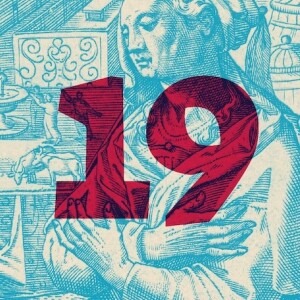
Monday Sep 16, 2024
Monday Sep 16, 2024
Our story takes place in Shiloh in the year preceding Samuel's birth.
Shiloh was a small settlement with a small worship center, to which Elkanah, Samuel's father, and his two wives, Peninnah and Hannah, used to come every year to perform some religious ceremony.
The Bible describes the hostile relationship that existed between Peninnah and Hannah. Yet, at the center of the story is the statement that God had closed Hannah's womb, and therefore she suffered from prolonged years of barrenness.
In this episode, we focus on two important matters. One is an ancient belief that God controls fertility in the world, including the fertility of women – and Hannah believed this as well.
Like Hannah, Sarah and Rachel also believed that for an unknown reason, God did not allow them to become pregnant for many years, which caused them great sorrow.
But unlike Sarah and Rachel, Hannah made a vow to persuade God to open her womb and allow her to become pregnant – and this is the second matter we focus on.
A vow is a paid oath. It is the most expensive payment that the person making the vow commits to before God, and this is exactly what Hannah intended!
Hannah swore that if she had a child, the child she had been waiting and longing for many years, would grow up and live all his life in the small temple that stood in Shiloh, and not with her or in his parents' home. As we know, Hannah kept her commitment.
In this episode, we define what a vow is, and how a vow made by a woman differs from that of a man.
Additionally, we discuss the meaning of the name Samuel. In English, the name Samuel has no meaning, but in the original language, the name Samuel (Shmuel in Hebrew) has several interpretations that play an important role in the story.

Monday Sep 16, 2024
Monday Sep 16, 2024
The Bible opens with two creation stories describing how God created the world, to which we dedicated the previous two episodes (16 and 17).
The first tells how God created the world over six days, and how He sanctified the seventh day as a day of rest. The second story focuses on the act that led to the expulsion of Adam and Eve from the Garden of Eden.
This episode is a bonus episode to the two creation stories in the Bible, with two main purposes.
The first is to show that these stories were not written in a vacuum and that they contain literary motifs that appear dozens of times in the mythologies told by ancient peoples.
For example, many people told that before creation, the universe was flooded with water, and that creation began from the waters, as told in the book of Genesis.
According to the story in Chapter 2 of Genesis, God created the first man and all the animals from dust. The motif that the gods created the first humans from earth, mud, or clay is also repeated in many ancient mythologies.
The serpent is one of the great heroes that recur in countless myths. In all of them, as in the Bible, it is considered the most cunning of all animals and the eternal enemy of man. The serpent symbolizes the power to kill and the power to revive. And because it sheds its skin, the ancients believed it lived forever.
The second goal we had in our bonus episode was to show that the ancients were intensively engaged in the same questions that occupy researchers today.
Like the best researchers at the world's top universities, they too sought to know how the world was created, and why humans are endowed with abilities that no other animal possesses. And of course, they too feared death and sought to live eternal lives.
But while scientists living today are committed to explaining their research according to a rigid academic methodology, and with the aid of sophisticated technological means, in practice they are revisiting the same questions that were asked about 5,000 years ago.
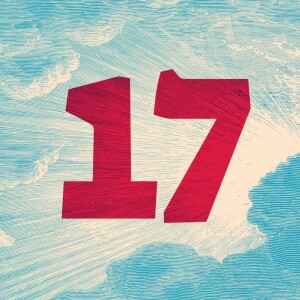
Saturday Aug 24, 2024
Saturday Aug 24, 2024
The Book of Genesis tells of two different creation stories. One focuses on the world's creation in six days and the sanctification of the seventh day, on which God rested from His work of creation.
In the previous episode, we discussed how this story forms the basis for many social laws, teaching that social order is an organic part of the order of the world's creation.
The second creation story focuses on violating God's prohibition against eating from the fruit of the 'Tree of Knowledge of Good and Evil', which we refer to here as a "Perfect Crime."
The fruit of the Tree of Knowledge of Good and Evil, which God planted in the Garden of Eden, had two miraculous qualities, not found in any other tree. The first is embodied in the tree's name: The Tree of Knowledge of Good and Evil.
According to the Bible, knowledge has only one meaning and purpose: the ability to recognize God's existence, to hear and understand His words and laws.
Had man not eaten from the fruit that gave him this ability, nothing would have distinguished human beings from all the other animals God created.
If so, what logic explains the severe prohibition against eating this excellent fruit?
The answer is that the second quality of the fruit was death. And so, God said to the first man:
"for when you eat from it you will certainly die."
The ancients believed, and so in the Bible, in different degrees of impurity, the most severe among them being the body of a dead person.
The ancients believed that the impurity created in the body of a dead person was drawn like a magnet to the temples they built to honor the gods they believed in.
The impurity that originates in the dead human body contaminates the temple and causes the gods to be expelled from it.
This belief also exists in the Bible!
There is no dispute that the garden planted by God was the holiest and purest place on earth, and therefore the most vulnerable to impurity.
To maintain the absolute purity of this wondrous garden, no one was born or died in it. As a result, life in the garden took place in a sterile frozen capsule, that was hermetically sealed.
To set the wheels of the real world in motion, the first couple had to eat the forbidden fruit!
And the moment they did so, two things happened simultaneously.
The first was that their DNA, and that of all their descendants, was forever changed.
Thanks to eating from the forbidden fruit, of all the creatures God created, only humans are capable of recognizing His existence, and only to them did He give laws and commandments.
However, impurity, especially the impurity created in a dead body, became an inherent part of humanity. From this fact, it is clear that to maintain the purity of the Garden of Eden, God had to expel the first couple from the holy garden, along with all the animals.
The second result of the "perfect crime" was that the real world, which is far from being idyllic and pure, where people are born and die, began its long journey.
Finally, we have one more comment:
According to the Bible, the Garden of Eden was on earth, but in Jewish and Christian tradition, the garden resides in heaven.
We will discuss in the future how the garden ascended to blue sky and became the dwelling place for the souls of the righteous dead.
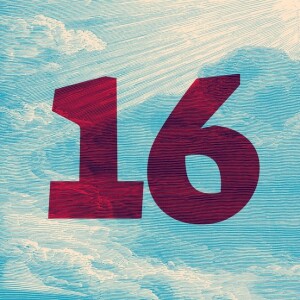
Tuesday Aug 06, 2024
Tuesday Aug 06, 2024
The Book of Genesis opens with two stories that tell how God created the world.
The first recounts that God created the world in six days and sanctified the seventh day since He rested from the work of creation.
The second story focuses on the deed that led to the expulsion of Adam and Eve from the Garden of Eden, which we will discuss in the next episode.
The episode before us is dedicated to the first creation story, where the fact that God created the world in six days and rested on the seventh, forms a legal foundation for many revolutionary laws, unknown to the ancient world, which are an integral part of the creation of the world.
Based on the creation story, the legislator, who according to the Bible is always God, divided the infinite sequence of days into three portions.
The first portion is of seven days, consisting of six workdays followed by a day of rest, to which all humans and working animals are entitled. In every respect, this is the most advanced social law in human history!
The second portion is seven years, and it refers to what the Bible calls a "Hebrew slave," who fell into a severe economic crisis that forced him to take a loan that he could not repay.
To pay his debt, he had to mortgage his land, and if that was not enough, then he and his wife were forced to pay their debt by working for the lender. In practice, they became slaves for six years – and in the seventh year, they were set free.
The third division expands the second division, and it is 49 years, which is a multiple of 7 times 7 years.
We said that a person who took a loan he could not repay was forced to mortgage his land and his labor to the lender. We also said that he and his wife were set free in the seventh year, but in this case, his land remained mortgaged and continued to pay the old debt.
A person who was set free, but whose land remained mortgaged, could never recover economically – and the third division addresses this situation.
If the land was not released earlier, then it was released after 49 years and returned to its original owner, who was likely no longer alive. But his children and grandchildren were alive, and returning land allowed them to rehabilitate their economic lives.
The story that God created the world in six days and rested on the seventh is not as banal as many think. A broad reading reveals that all the social laws scattered throughout the Bible are an organic part of the creation and that they were intended to create a society where everyone is equal before the law. A just society that has compassion for the weak.








